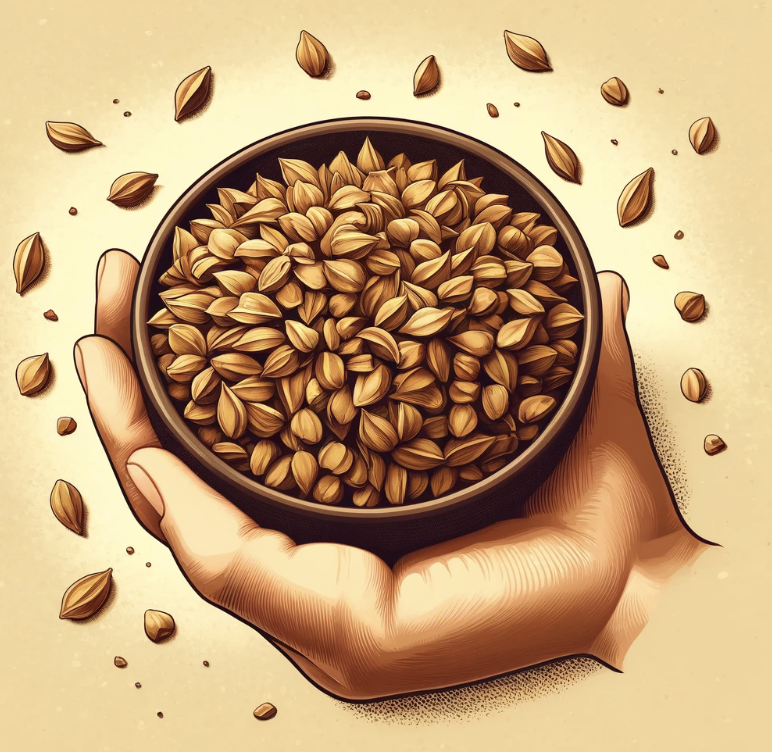

TEL: 1-608-238-6001 Email: greg@cruisingreview.com

|

|
|
Fenugreek: A Versatile Herb for Health and Wellness Fenugreek is an herb native to the Mediterranean region, Southern Europe, and Western Asia. Its seeds are used in cooking, as a spice, and for medicinal purposes, while its fresh and dried leaves, known as methi, are used as a herb. The cultivation of fenugreek involves planting its seeds in well-drained soil with plenty of sunlight. The plant thrives in warm climates and is harvested when the pods turn yellow and the seeds within develop a pungent, sweet aroma.Production and ProcessingFenugreek seeds are the most widely used part of the plant. After harvesting, the seeds are dried and can be used whole or ground into a powder. This process concentrates the active compounds in fenugreek, making it a potent ingredient for culinary and therapeutic applications.Health Benefits and Consumption MethodsFenugreek is known for its rich composition of vitamins, minerals, and phytonutrients, including iron, magnesium, manganese, and fiber. It also contains a unique compound called saponins, which are believed to have anti-inflammatory and antioxidant properties.The health benefits of fenugreek are diverse:• Blood Sugar Control: Fenugreek has been shown to improve glucose tolerance and lower blood sugar levels in people with diabetes, thanks to its high fiber content and other bioactive components.• Digestive Health: The fiber in fenugreek aids in digestion and helps in relieving constipation.• Cholesterol Reduction: Fenugreek seeds can help lower levels of LDL (bad) cholesterol, potentially reducing the risk of heart disease.• Circulation: While direct studies on fenugreek's effects on circulation are limited, its antioxidant properties may support healthy blood flow by preventing damage to blood vessels.For optimal absorption and benefits, fenugreek can be consumed in several forms:1. Seeds: Soaked overnight and consumed on an empty stomach.2. Powder: Added to warm water or mixed into food.3. Supplements: Capsules or pills as directed by healthcare providers.Fenugreek's versatility extends beyond ingestion:• Tea: Fenugreek tea, made from seeds or powder, is popular for its health benefits, especially for digestion and lactation support.• Body Lotion: Some natural health and beauty products include fenugreek extract for its anti-inflammatory and antioxidant properties, which may help in skin health and soothing muscle pain.ConclusionFenugreek is a multifaceted herb offering significant health benefits ranging from improved digestion and blood sugar control to potential positive effects on cholesterol and circulation. Its flexibility in form—seeds, powder, tea, or supplements—allows for easy incorporation into daily routines, providing a natural boost to overall wellness. The use of fenugreek in tea and topical applications like body lotions further exemplifies its wide-ranging utility in health and beauty regimes.Notes1. Sharma, R. D., Raghuram, T. C., & Rao, N. S. (1990). Effect of fenugreek seeds on blood glucose and serum lipids in type I diabetes. European Journal of Clinical Nutrition, 44(4), 301-306.2. Madar, Z., & Shomer, I. (1993). Effect of fenugreek seeds on blood glucose and lipid profiles in type 2 diabetic patients. International Journal for Vitamin and Nutrition Research, 63(1), 29-33.3. Yadav, U. C. S., & Baquer, N. Z. (2014). Pharmacological effects of Trigonella foenum-graecum L. in health and disease. Pharmaceutical Biology, 52(2), 243-254.4. Chevassus, H., Molinier, N., Costa, F., Galtier, F., Renard, E., & Petit, P. (2009). A fenugreek seed extract selectively reduces spontaneous fat intake in overweight subjects. European Journal of Clinical Pharmacology, 65(5), 1175-1178. |
|
Other topics... PEMF More InfoRosemary More InfoWellness More InfoBody Lotion More InfoTurmeric More InfoGinger More InfoZinc More InfoPhytoncides More InfoSleep More InfoGreen Tea More InfoTamanu Oil More InfoOregano More InfoGinseng More InfoApple Cider Vinegar More InfoTelomere More InfoTomato More InfoExercise More InfoFenugreek More InfoVit D More InfoMagnesium More InfoPineapple More InfoRed Light Therapy More InfoRed Light Therapy For Eyes More Info |
| CONTACT TEL: 608-238-6001 Email: greg@cruisingreview.com | AMP | PDF |